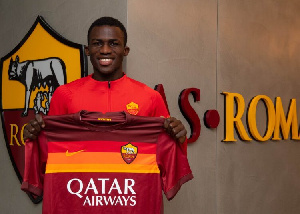Premier League Money: The Economics of Winning, Relegation and Promotion

As we’re coming to the season finale, I thought it would be interesting to look at the finances surrounding the Premier League.
The Premier League is known not only for its world-class talent and intense competition but also for the vast sums of money at stake. Winning the Premier League is more than just lifting a trophy; it’s about reaping significant financial rewards. But the prize money doesn’t end there—it extends to every team, whether they win, finish mid-table, or face the looming threat of relegation.
Let’s explore the economics and how it impacts clubs at every level.
The Premier League has a unique system for distributing prize money. It involves a combination of broadcasting revenue, merit payments based on final league position, and other commercial income.
Broadcasting Revenue
The Premier League’s broadcasting deals are among the most lucrative in sports. With agreements with major networks in the UK and global partners like NBC Sports (United States), ESPN (Brazil), and beIN Sports (MENA), the league distributes these earnings among the 20 teams. A significant portion of this revenue is shared equally, ensuring that every club benefits from the league’s commercial success.
For the current cycle, an unprecedented event occurred: for the first time since the competition began 30 years ago the value of the Premier League’s overseas TV rights is greater than the domestic contract.
For 2022-2025, the Premier League secured a domestic TV rights deal worth approximately £5 billion and international rights worth about £10 billion. This level of revenue means that every Premier League team receives significant financial benefits, even those at the bottom of the table.
The first contract signed for the sale of international rights in 1992 was worth £8 million per year for 5 seasons.
In the 2022-2023 season, the Premier League had a total prize pool of about £2.5 billion. This was distributed to clubs in several ways:
Each of the 20 Premier League clubs received an equal share of around £80 million from the broadcasting revenue.
In addition to the equal distribution of broadcasting revenue, merit payments reward teams based on their final position in the league table. The higher a team finishes, the more money it receives.
The champions receive the largest share, while those finishing lower in the table earn less. This creates an incentive for clubs to strive for higher positions, as each step up can mean millions of pounds in additional revenue.
For example, the 2022-2023 Premier League champions, Manchester City, received around £160 million, including merit payments and other incentives. The club finishing 20th (relegated), Southampton, still earned about £100 million.
While winning the Premier League brings financial windfalls, the prospect of relegation is a significant concern for clubs at the other end of the table. Relegation means a drastic reduction in revenue, as teams drop to the Championship, where broadcasting deals and commercial opportunities are less lucrative.
To soften the financial blow, the Premier League provides parachute payments to relegated clubs. These payments are staggered over three seasons, with the first year providing approximately £40 million, the second year about £30 million, and the third year around £15 million.
Despite these parachute payments, relegated clubs often face financial challenges, leading to player sales, staff cuts, and reduced operating budgets. Clubs like Norwich City and Watford have experienced the yo-yo effect, oscillating between the Premier League and the Championship.
The Championship: Promotion’s High-Stakes Reward
For clubs in the Championship, the second tier of English football, the dream of promotion to the Premier League represents a financial jackpot. The most lucrative match in football is the Championship Playoff Final, often dubbed the “£100 million game.” This single match determines which team secures the final promotion spot, offering the winner a share in the Premier League’s riches.
The stakes are so high that clubs invest heavily in their squads and infrastructure, hoping to secure promotion and the financial rewards it brings.
In 2023, the Playoff Final between Luton Town and Coventry City had massive implications for both clubs. Luton Town, the eventual winner, gained promotion to the Premier League and the associated revenue opportunities. The Playoff Final winner also benefits from increased commercial opportunities due to the Premier League’s global reach.
The economics of the Premier League are intricate, with prize money, broadcasting revenue, and commercial income all playing a crucial role in shaping the fortunes of clubs. From the champions at the top to the relegated teams at the bottom, every position in the league table has significant financial implications.
For clubs in the Championship, the journey to the Premier League is fraught with challenges, but the potential rewards are immense. As the Premier League continues to grow, the stakes will only get higher, making it a captivating spectacle both on and off the pitch.
Thanks for reading, David Skilling
Source: Thepressradio.com| David Skilling|UK





